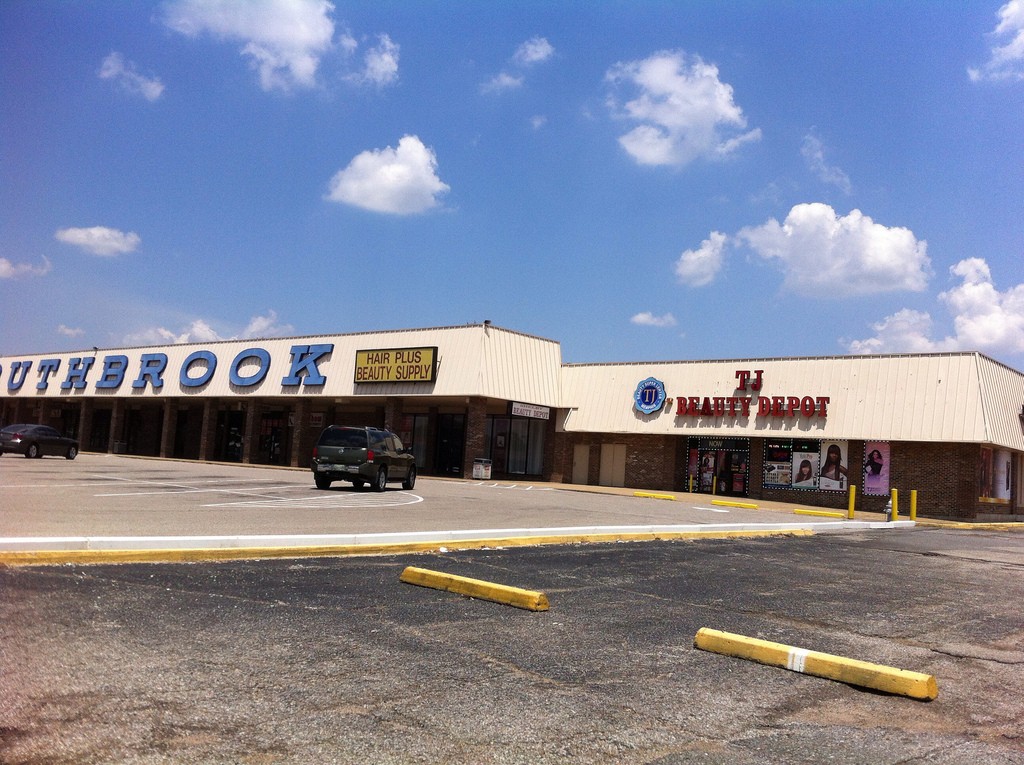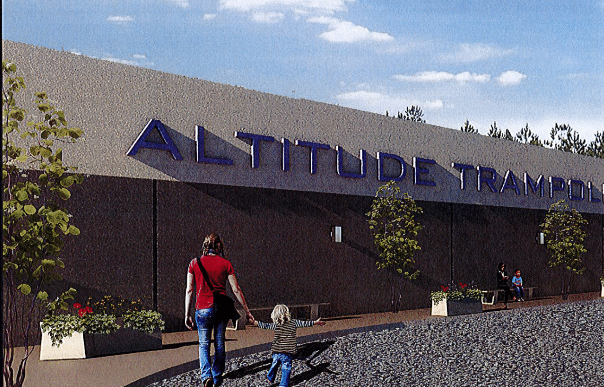
View of mostly vacant property on the corner of Faronia and East Shelby Drive today
A new indoor trampoline park could be built in a mostly vacant supermarket building in Whitehaven, as the city/county economic development agency okayed a tax incentive for the project on Wednesday.
The Memphis and Shelby County Economic Development Growth Engine (EDGE) awarded a 15-year community builder PILOT to Beet Capital to turn a property on the corner of Faronia and East Shelby Drive into a new family entertainment-anchored shopping center.
Beet Capital, along with the property owners, Ki and Kyung Kim, plan to invest just under $4.5 million to convert the 74,000-square-foot space into a trampoline park with adjoining office and retail space.
Altitude Trampoline Park, a Texas-based trampoline park giant, will be the anchor tenant, occupying 37,000 square feet or about half of the space. The remaining square-footage will be used for retail and office space.
The project, dubbed Whitehaven Landing, is scheduled to be completed in two phases. The trampoline park and about 3,000 square feet of office space will be developed during the first phase, which is set to begin immediately and wrap up by the end of the summer.

Rendering of proposed trampoline park
Implementation of phase two will depend on the completion of phase one, developers said, but ultimately they hope to fill the spaces with a pizza restaurant, bakery, and an additional entertainment venue.
Andrew Kim of Beet Capital said the overall goal of the project is to abate blight, meet the area’s demand for family entertainment options, and expand the local economy.
Martavius Jones, a Memphis City Councilman and member of EDGE called the project a “welcomed addition” to the neighborhood.
“I think that it will attract not only visitors from Graceland, but also residents in that area who cry to me and my colleagues that we need something in Whitehaven for people to do,” he said.
Once both phases are completed, 89 full-time-equivalent jobs, paying an average annual wage of $22,804, will open.
During the PILOT phase, the developers anticipate saving a little over $1 million, while producing $433,205 in local tax revenues. Post-PILOT the site would produce $113,000 in local taxes each year.
Per PILOT guidelines, 35 percent of incentivized funds, or $762,291 must be used to contract city or county certified minority- or women-owned business enterprises (MWBE).
EDGE also awarded a 15-year community builder PILOT (pay-in-lieu-of-taxes) to the William R. Moore College of Technology in order to turn a blighted East Memphis building into an auto-mechanic training school
Moore Tech, in partnership with the Greater Memphis Automobile Dealers Association, plans to invest $2,396,000 to rehab the nearly four-acre Mendenhall property’s exterior facade, replace its HVAC system, and install shop equipment. Additionally, six classrooms, a computer lab, and an auditorium will be added to the property.
The initial investment will also fund workforce development and the creation of four full-time jobs with an annual average salary of $56,750.
Stanley Redmond of Moore Tech said once opened, the school will initially enroll about 90 regional students and graduate a minimum of 30 each year. Eventually, enrollment could increase to 200 students a year, he said.
Tuition for the two-year program would total about $22,000. Redmond said this is cheap compared to most mechanic schools that teach “high technical expertise.”
Redmond said that auto dealers estimate there are about 100 mechanic jobs open each year and the goal of the facility is to produce skilled workers who can fill those spots, while demanding $40,000 a year right out of school. After about five years of experience, Redmond said senior auto mechanic can make over $100,000.
“I believe [the school] will be nationally recognized,” Redmond said.
MWBE spending for the project must total $444,000.
During the PILOT phase, Moore Tech would save a little over $656,000, while producing just under $457,000 in local tax revenues. Post-PILOT the site would produce $69,000 in local taxes per year.